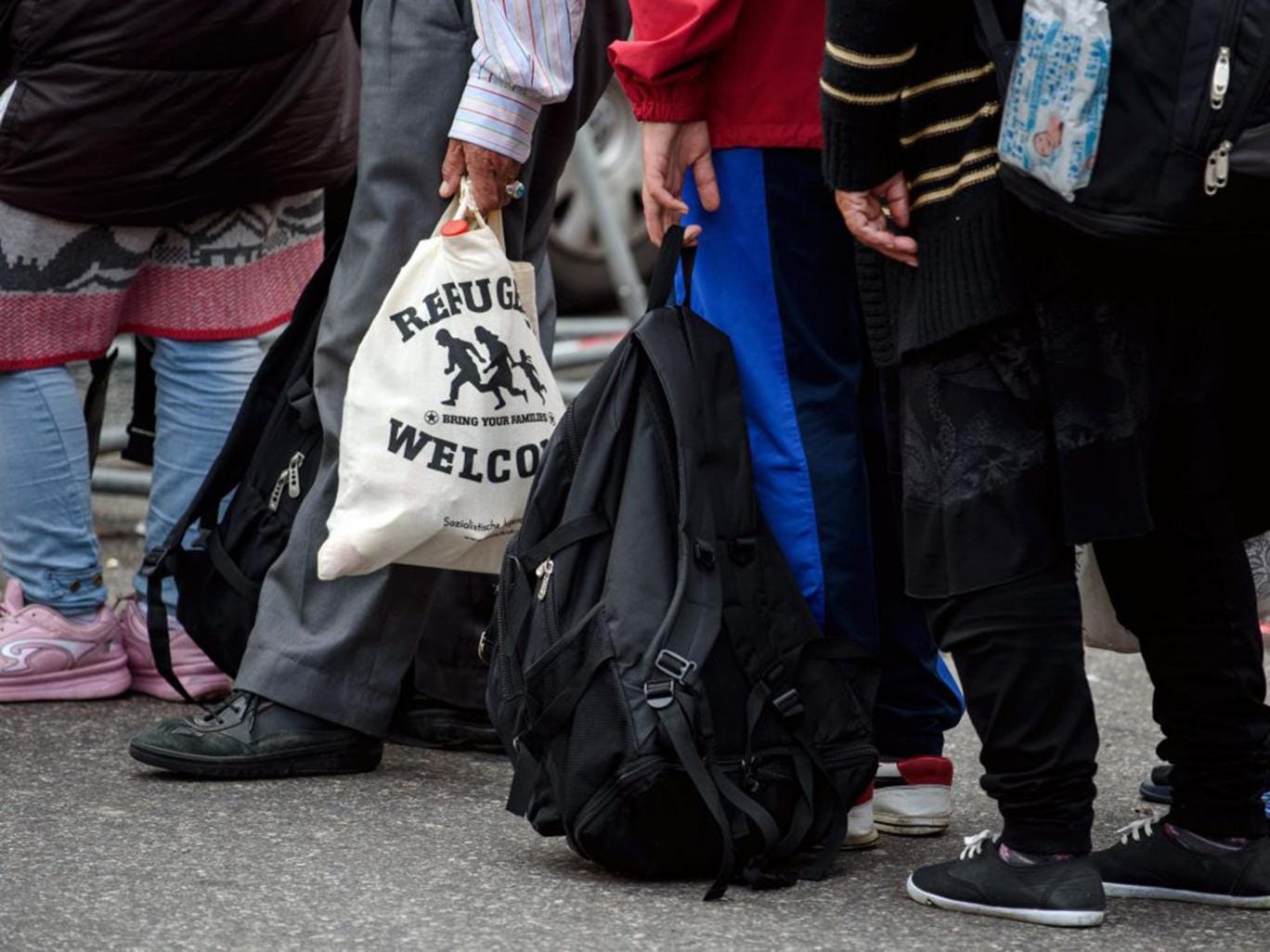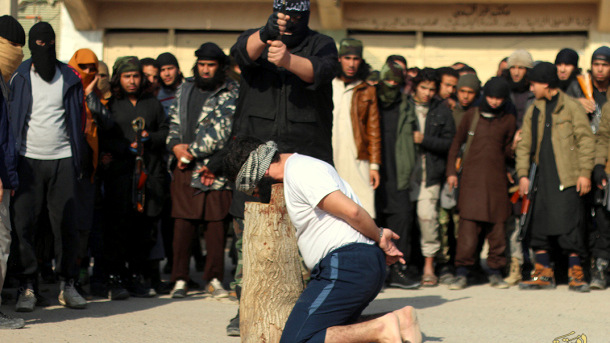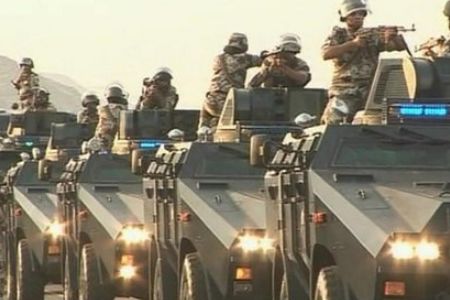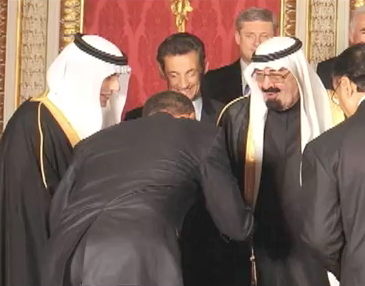A deal with the devil
I recently talked with a friend of mine who's a Lebanon-born Christian. We were watching an Egyptian movie from the 60s, the golden age of Arab cinema. You may ask, what does this have to do with the terror attacks in Paris, Sinai, Beirut, Ankara, Iraq and Yemen? Well, do bear with me.
The movie was about a group of holiday-makers, several family couples who had a dispute of some sorts, so they decided to play a football match, men vs women, and whichever side lost would be temporary servants to the other. Somehow the women won the game, and for some time their men had to do the cleaning, laundry, etc. The story may sound naive, and it certainly doesn't sound like an Arab movie. If we look at the films, books, photos, magazines and newspapers from the 50s and 60s (and partly the 70s) that came from countries like Egypt, Syria, Tunisia, we'd be shocked how they looked like. You'd wonder how come the Arab world has transformed so radically for the last few decades. You'd never see a woman with a hijab in those old movies. Chances are, you'd even see some nudity on screen. Cairo was the Arab Hollywood back then, and Beirut the Paris of the East. So how did that all change, and why?

If we want to find the answer, first we'd have to check the meaning of such terms as petro-Islam, Wahhabism and Salafism. The term petro-Islam actually isn't Western, it was invented in the Arab world, and it became popular through the works of Lebanese professor Fouad Ajami, and Egyptian philosopher Fouad Zakariyya. It usually denotes the influence that Saudi Arabia is exhibiting and using to earn the loyalty of the Muslim world in its aspirations to become a regional power, by spreading the Saudi version of Islam, Wahhabism. It uses its vast financial resources to achieve that. This term signifies the reversal to more conservative practices such as gender discrimination, a strict dress code, and the imposition of Sharia law.
It's a fact that the European and North American economies could not possibly sustain a high level of development without the oil of the Gulf states, Saudi Arabia being the leading world oil producer. This gradually granted the kingdom the status of the largest political and trade partner of the West in the region, and the US, apart from earning control over these resources, also got a huge consumer of the American expensive technological production, a customer that was seemingly easy to manipulate. This way, the West has voluntarily signed a pact with the devil, allowing Saudi Arabia to become a regional leader, and spread the Salafi-Wahhabi doctrine with impunity.
And the Saudis have been doing just that ever since. From the 70s onwards, millions of Muslims headed to the Gulf, where countries like Qatar, Saudi Arabia, Kuwait and UAE offered lucrative work contracts. Upon returning home, those guest workers brought back the radical version of Islam, which explains the rapid cultural shift in their home countries. That's why the cinema, fashion and culture of the 60s will remain a faint memory. For the last few decades, Saudi Arabia has spent billions of dollars in building Wahhabi mosques not just in the Arab world but also in Europe. Their proposal to Merkel to "help" the Syrian refugees in Germany by building 200 mosques is no surprise. They wouldn't take any refugees, leaving tiny countries like Lebanon and Jordan to struggle with the huge refugee pressure - but they'd build mosques. Isn't that great?

The leaders of Kuwait, Qatar and KSA have managed to orchestrate and manipulate all events in the Arab and Western world in a categorical and unscrupulous way. They successfully hijacked the wave of indignation of the Arab Spring, they financed conservative Muslim movements like the Muslim Brotherhood in Egypt, Ennahda in Tunisia, the Justice and Development Party in Morocco, and the Islamists who've now taken control of Libya. It's no surprise that Bin Laden's successor, Zawahiri is also a Muslim Brother. In Syria and Iraq, the Saudis have funded ISIS and a number of lesser radical groups like Al-Nusra and Ansar Al-Sham, hypocritically dubbing the latter two "moderate rebels" against the murderous Assad regime.
ISIS is no different from Saudi Arabia in terms of ideology. After all, they both share the same doctrine, Wahhabism and Salafism, whose roots are in Saudi Arabia itself. Burning churches, forceful conversion of infidels, mass killings of Shias, banning women from driving cars or showing their faces in public, public executions, stoning to death... Really, where's the difference between KSA and ISIS?
In the Kingdom of Saud, Christianity is banned. There isn't a single church. There's religious police that arrests people for carrying Christian symbols; and the punishment for Christian sermon is death. Women have no right to drive cars, or leave home without a male family member, or show their face from under the hijab; if they're raped, their testimony counts for nothing, and worse, they could be accused of adultery and flogged. If a Saudi woman marries a foreigner, she instantly loses her citizenship. A young lad, Raif Bawai, was sentenced to 1000 lashes and subsequently mutilated for merely posting secularist comments on Twitter. And that's not an exception, it's the norm. The attitude to the Shias is brutal as well. In fact, the Amnesty reports show that Saudi Arabia has beheaded twice as many people as ISIS has so far. Even the Al-Nusra flags are the same like the Saudi flag, only they're black.

Today, the European and American leaders are hypocritically throwing all the blame for the terror on ISIS, and few ever dare to take note of its relations to the billionaires of the Gulf. 15 out of the 19 terrorists of the 9-11 attacks were Saudis. Osama bin-Laden was Saudi too. Did the US say a word of criticism to Saudi Arabia, and why was Iraq invaded when Saddam had nothing to do with any of that? Didn't anyone notice that ISIS is just a Saudi extension, and a KSA twin, both in terms of ideology, political doctrine, and strategy? Are Europe and America really that dependent on the Saudi oil, and so scared they could lose their biggest source of cheap energy resources, that they're prepared to stay silent and submit?
Hollande at least did acknowledge after the Paris attacks that not Assad but ISIS is France's biggest foe. But again, no one asked who the real architects of that atrocity is. Out of fear and dependency. Because, no matter how much you bomb Raqqa, the ISIS capital, the problem won't be solved. In fact, that city has been bombed by a number of coalitions through the years - it should've become an empty hole covered with ashes by now. And yet, ISIS is thriving.

In fact, who's using whom? In reality, the Saudi desire to ideologically control the Muslim world is seriously affecting the life of millions of Arabs, and by extension, the rest of the world as well. The Saudi rulers have managed to rally a large part of the Muslim world, and convince them that they're the only true defenders of Islam, both financially and spiritually. The more vicious the conflicts between Sunni and Shia become, the more political benefit the Saudis would draw from it. After all, we're talking of a country that produces nothing essential but oil, technologically it's still in the Middle Ages, and their only way to compensate for that is through ideological control, based on a global oil dependency.
The Sunni constitute 85% of the world's Muslims, and this gives the Saudi rulers a pretext to use the conflict between the West and Iran, the Shia center, to get the former on their side. That's the reason that Europe and America have remained relatively silent about the Beirut terror attack from a couple of weeks ago, which indeed targeted the Shia. Even the Western media tried to sell this as a strike on Hezbollah, rather than the ordinary Shia people. Hey, they're Shia, therefore they're Hezbollah, therefore they're terrorists! The Saudis mercilessly pounded the Hutti in Yemen, who've been trying to emancipate themselves from the Sunni regime there. Saudi militants have invaded and occupied Bahrain during the Arab Spring, and beat up thousands of Shia who were protesting the rule of the Sunni minority clique in that country.

The conflict hasn't ceased in Iraq either, where for 15 years there's been a violent clash between Shia and Sunni. It's in Iraq that Al Qaida of Iraq was transformed into ISIS, out of the remnants of Saddam's broken military. In all those hot spots, the Saudis have skillfully been creating tension through exporting terrorism, funding various extremist groups both in the Middle East and beyond, and generally turning neighbors against each other, while presenting themselves as the defenders of Sunni Islam, and a source of stability. This way they've earned huge support in the region. The Qatari television Al Jazeera and the various Saudi channels have presented the Syrian conflict as a Sunni rebellion against a blood-thirsty dictator and murderer of Sunni children. They're winning hearts and minds big time, and the West is in for quite some shock, once/if ISIS is removed militarily - because it'll inevitably resurface in some other form before you've managed to pronounce "Mission accomplished".
The same strategy of systematic confrontation is also used by Turkey's leader Erdogan, himself a devout Muslim Brotherhood supporter. His biggest ally is Saudi Arabia, and in all his words and actions he has made clear which ideology he truly follows. Erdogan believes women are not equal to men, and Islam has assigned them the role of mothers and home-keepers who should stay in the kitchen and look after the kids. Given his statements about Medieval Ottomans having discovered America before Columbus, as well as his stances on antisemitism and Western civilization, we could easily guess which direction Turkey is headed to (in this sense, EU's decision to cave in under Turkish blackmail about the 2 million refugees sitting in Turkey, and grant Turkey a place back on the fast lane towards EU membership in exchange for holding those refugees at bay, is as unsurprising as it is infuriating).
There've been three large terrorist attacks against Kurdish protesters in Turkey: one in Diyarbakir , one in Suruc, and the bloodiest of them all in Ankara itself. On all occasions, the Turkish authorities have washed their hands and declared ISIS the perpetrator, although the Kurds sure do know better. In this sense, a prominent Kurdish lawyer having been shot in the middle of an outdoors TV interview doesn't help Erdogan's case much, either.

The tensions between Turks and Kurds have escalated, the majority of Turks have seen a threat to their national integrity, and the winner from it all is of course Erdogan again, whose party won the latest election by a landslide. By pursuing aggressive anti-Kurdish policies, he has managed to manipulate public perception, and convince the majority of his people that he's their best chance of having their national interests defended. All this became very evident from the way the Turkish crowd booed the minute of silence for the Paris victims during the "friendly" football game with Greece - a thing that also happened in Sarajevo before the Bosnia v Ireland game. This may seem no big deal to you, but the Euro-liberals have been looking for all sorts of excuses for that sort of behavior, while remaining scandalously coy about naming the true instigator of this sort of attitude: Saudi Arabia.
The Paris attacks and the attempted Hannover attacks aren't just some single acts by angry bearded men. These are symptoms of a meticulously planned and well executed policy that's aimed at rallying the radicals on both sides of this conflict, and causing a violent clash. The Muslims are going to be used as a Trojan horse, and Europe's safety will become dependent on the mercy of the Gulf states. The goal is to cause permanent fear among both Europeans and Muslims, and make the latter feel increasingly isolated and discriminated against, their radicalization being the end game. Unfortunately, this is already happening, and things will be getting much worse for Europe. In response, various far-right and other nationalistic movements are rising, and this could only make the Salafis and Wahhabis in Saudi Arabia very delighted.

The European politicians are hypocritically silent, they've desperately clung to their energy and political dependence like drug addicts, and they're coyly tossing the blame onto ISIS, i.e. on the symptom rather than the cause. And while this hypocrisy persists, the situation won't change. It won't change while the Muslim community is being presented as a victim. It sure is a vitim, but not to the so called "Western values" (whatever that's supposed to mean). They're a victim to their own fear and ignorance. No one should allow ideology to rule society. All ideologies need reform, because they're a reflection of the development of society, not viceversa. And the ideology of political Islam has to reform, otherwise those societies are forever doomed to remain in the Middle Ages.
People allow to be ruled through their own fears - be they economic, ideological or religious. Which is exactly why Saudi Arabia will never be technologically and socially advanced, it won't contribute with anything productive, and it'll never be anywhere near being a paragon of stability and human dignity. The Muslim community should again take control of their own religion, instead of allowing it to become a tool for walking towels and their sick ambitions. Salafism and Wahhabism can never be a culture of any kind, all they can be is a means to creating conflicts, a compensation for a lack of other means of being significant. America, Russia and Europe should find a common ground for dialogue and create a common strategy, instead of playing this endless game of asserting their interests at the expense of others - because this will only widen the rift between everybody, and allow for more space for Saudi-sponsored extremism to fill, and thrive there.
The movie was about a group of holiday-makers, several family couples who had a dispute of some sorts, so they decided to play a football match, men vs women, and whichever side lost would be temporary servants to the other. Somehow the women won the game, and for some time their men had to do the cleaning, laundry, etc. The story may sound naive, and it certainly doesn't sound like an Arab movie. If we look at the films, books, photos, magazines and newspapers from the 50s and 60s (and partly the 70s) that came from countries like Egypt, Syria, Tunisia, we'd be shocked how they looked like. You'd wonder how come the Arab world has transformed so radically for the last few decades. You'd never see a woman with a hijab in those old movies. Chances are, you'd even see some nudity on screen. Cairo was the Arab Hollywood back then, and Beirut the Paris of the East. So how did that all change, and why?

If we want to find the answer, first we'd have to check the meaning of such terms as petro-Islam, Wahhabism and Salafism. The term petro-Islam actually isn't Western, it was invented in the Arab world, and it became popular through the works of Lebanese professor Fouad Ajami, and Egyptian philosopher Fouad Zakariyya. It usually denotes the influence that Saudi Arabia is exhibiting and using to earn the loyalty of the Muslim world in its aspirations to become a regional power, by spreading the Saudi version of Islam, Wahhabism. It uses its vast financial resources to achieve that. This term signifies the reversal to more conservative practices such as gender discrimination, a strict dress code, and the imposition of Sharia law.
It's a fact that the European and North American economies could not possibly sustain a high level of development without the oil of the Gulf states, Saudi Arabia being the leading world oil producer. This gradually granted the kingdom the status of the largest political and trade partner of the West in the region, and the US, apart from earning control over these resources, also got a huge consumer of the American expensive technological production, a customer that was seemingly easy to manipulate. This way, the West has voluntarily signed a pact with the devil, allowing Saudi Arabia to become a regional leader, and spread the Salafi-Wahhabi doctrine with impunity.
And the Saudis have been doing just that ever since. From the 70s onwards, millions of Muslims headed to the Gulf, where countries like Qatar, Saudi Arabia, Kuwait and UAE offered lucrative work contracts. Upon returning home, those guest workers brought back the radical version of Islam, which explains the rapid cultural shift in their home countries. That's why the cinema, fashion and culture of the 60s will remain a faint memory. For the last few decades, Saudi Arabia has spent billions of dollars in building Wahhabi mosques not just in the Arab world but also in Europe. Their proposal to Merkel to "help" the Syrian refugees in Germany by building 200 mosques is no surprise. They wouldn't take any refugees, leaving tiny countries like Lebanon and Jordan to struggle with the huge refugee pressure - but they'd build mosques. Isn't that great?

The leaders of Kuwait, Qatar and KSA have managed to orchestrate and manipulate all events in the Arab and Western world in a categorical and unscrupulous way. They successfully hijacked the wave of indignation of the Arab Spring, they financed conservative Muslim movements like the Muslim Brotherhood in Egypt, Ennahda in Tunisia, the Justice and Development Party in Morocco, and the Islamists who've now taken control of Libya. It's no surprise that Bin Laden's successor, Zawahiri is also a Muslim Brother. In Syria and Iraq, the Saudis have funded ISIS and a number of lesser radical groups like Al-Nusra and Ansar Al-Sham, hypocritically dubbing the latter two "moderate rebels" against the murderous Assad regime.
ISIS is no different from Saudi Arabia in terms of ideology. After all, they both share the same doctrine, Wahhabism and Salafism, whose roots are in Saudi Arabia itself. Burning churches, forceful conversion of infidels, mass killings of Shias, banning women from driving cars or showing their faces in public, public executions, stoning to death... Really, where's the difference between KSA and ISIS?
In the Kingdom of Saud, Christianity is banned. There isn't a single church. There's religious police that arrests people for carrying Christian symbols; and the punishment for Christian sermon is death. Women have no right to drive cars, or leave home without a male family member, or show their face from under the hijab; if they're raped, their testimony counts for nothing, and worse, they could be accused of adultery and flogged. If a Saudi woman marries a foreigner, she instantly loses her citizenship. A young lad, Raif Bawai, was sentenced to 1000 lashes and subsequently mutilated for merely posting secularist comments on Twitter. And that's not an exception, it's the norm. The attitude to the Shias is brutal as well. In fact, the Amnesty reports show that Saudi Arabia has beheaded twice as many people as ISIS has so far. Even the Al-Nusra flags are the same like the Saudi flag, only they're black.

Today, the European and American leaders are hypocritically throwing all the blame for the terror on ISIS, and few ever dare to take note of its relations to the billionaires of the Gulf. 15 out of the 19 terrorists of the 9-11 attacks were Saudis. Osama bin-Laden was Saudi too. Did the US say a word of criticism to Saudi Arabia, and why was Iraq invaded when Saddam had nothing to do with any of that? Didn't anyone notice that ISIS is just a Saudi extension, and a KSA twin, both in terms of ideology, political doctrine, and strategy? Are Europe and America really that dependent on the Saudi oil, and so scared they could lose their biggest source of cheap energy resources, that they're prepared to stay silent and submit?
Hollande at least did acknowledge after the Paris attacks that not Assad but ISIS is France's biggest foe. But again, no one asked who the real architects of that atrocity is. Out of fear and dependency. Because, no matter how much you bomb Raqqa, the ISIS capital, the problem won't be solved. In fact, that city has been bombed by a number of coalitions through the years - it should've become an empty hole covered with ashes by now. And yet, ISIS is thriving.

In fact, who's using whom? In reality, the Saudi desire to ideologically control the Muslim world is seriously affecting the life of millions of Arabs, and by extension, the rest of the world as well. The Saudi rulers have managed to rally a large part of the Muslim world, and convince them that they're the only true defenders of Islam, both financially and spiritually. The more vicious the conflicts between Sunni and Shia become, the more political benefit the Saudis would draw from it. After all, we're talking of a country that produces nothing essential but oil, technologically it's still in the Middle Ages, and their only way to compensate for that is through ideological control, based on a global oil dependency.
The Sunni constitute 85% of the world's Muslims, and this gives the Saudi rulers a pretext to use the conflict between the West and Iran, the Shia center, to get the former on their side. That's the reason that Europe and America have remained relatively silent about the Beirut terror attack from a couple of weeks ago, which indeed targeted the Shia. Even the Western media tried to sell this as a strike on Hezbollah, rather than the ordinary Shia people. Hey, they're Shia, therefore they're Hezbollah, therefore they're terrorists! The Saudis mercilessly pounded the Hutti in Yemen, who've been trying to emancipate themselves from the Sunni regime there. Saudi militants have invaded and occupied Bahrain during the Arab Spring, and beat up thousands of Shia who were protesting the rule of the Sunni minority clique in that country.

The conflict hasn't ceased in Iraq either, where for 15 years there's been a violent clash between Shia and Sunni. It's in Iraq that Al Qaida of Iraq was transformed into ISIS, out of the remnants of Saddam's broken military. In all those hot spots, the Saudis have skillfully been creating tension through exporting terrorism, funding various extremist groups both in the Middle East and beyond, and generally turning neighbors against each other, while presenting themselves as the defenders of Sunni Islam, and a source of stability. This way they've earned huge support in the region. The Qatari television Al Jazeera and the various Saudi channels have presented the Syrian conflict as a Sunni rebellion against a blood-thirsty dictator and murderer of Sunni children. They're winning hearts and minds big time, and the West is in for quite some shock, once/if ISIS is removed militarily - because it'll inevitably resurface in some other form before you've managed to pronounce "Mission accomplished".
The same strategy of systematic confrontation is also used by Turkey's leader Erdogan, himself a devout Muslim Brotherhood supporter. His biggest ally is Saudi Arabia, and in all his words and actions he has made clear which ideology he truly follows. Erdogan believes women are not equal to men, and Islam has assigned them the role of mothers and home-keepers who should stay in the kitchen and look after the kids. Given his statements about Medieval Ottomans having discovered America before Columbus, as well as his stances on antisemitism and Western civilization, we could easily guess which direction Turkey is headed to (in this sense, EU's decision to cave in under Turkish blackmail about the 2 million refugees sitting in Turkey, and grant Turkey a place back on the fast lane towards EU membership in exchange for holding those refugees at bay, is as unsurprising as it is infuriating).
There've been three large terrorist attacks against Kurdish protesters in Turkey: one in Diyarbakir , one in Suruc, and the bloodiest of them all in Ankara itself. On all occasions, the Turkish authorities have washed their hands and declared ISIS the perpetrator, although the Kurds sure do know better. In this sense, a prominent Kurdish lawyer having been shot in the middle of an outdoors TV interview doesn't help Erdogan's case much, either.

The tensions between Turks and Kurds have escalated, the majority of Turks have seen a threat to their national integrity, and the winner from it all is of course Erdogan again, whose party won the latest election by a landslide. By pursuing aggressive anti-Kurdish policies, he has managed to manipulate public perception, and convince the majority of his people that he's their best chance of having their national interests defended. All this became very evident from the way the Turkish crowd booed the minute of silence for the Paris victims during the "friendly" football game with Greece - a thing that also happened in Sarajevo before the Bosnia v Ireland game. This may seem no big deal to you, but the Euro-liberals have been looking for all sorts of excuses for that sort of behavior, while remaining scandalously coy about naming the true instigator of this sort of attitude: Saudi Arabia.
The Paris attacks and the attempted Hannover attacks aren't just some single acts by angry bearded men. These are symptoms of a meticulously planned and well executed policy that's aimed at rallying the radicals on both sides of this conflict, and causing a violent clash. The Muslims are going to be used as a Trojan horse, and Europe's safety will become dependent on the mercy of the Gulf states. The goal is to cause permanent fear among both Europeans and Muslims, and make the latter feel increasingly isolated and discriminated against, their radicalization being the end game. Unfortunately, this is already happening, and things will be getting much worse for Europe. In response, various far-right and other nationalistic movements are rising, and this could only make the Salafis and Wahhabis in Saudi Arabia very delighted.

The European politicians are hypocritically silent, they've desperately clung to their energy and political dependence like drug addicts, and they're coyly tossing the blame onto ISIS, i.e. on the symptom rather than the cause. And while this hypocrisy persists, the situation won't change. It won't change while the Muslim community is being presented as a victim. It sure is a vitim, but not to the so called "Western values" (whatever that's supposed to mean). They're a victim to their own fear and ignorance. No one should allow ideology to rule society. All ideologies need reform, because they're a reflection of the development of society, not viceversa. And the ideology of political Islam has to reform, otherwise those societies are forever doomed to remain in the Middle Ages.
People allow to be ruled through their own fears - be they economic, ideological or religious. Which is exactly why Saudi Arabia will never be technologically and socially advanced, it won't contribute with anything productive, and it'll never be anywhere near being a paragon of stability and human dignity. The Muslim community should again take control of their own religion, instead of allowing it to become a tool for walking towels and their sick ambitions. Salafism and Wahhabism can never be a culture of any kind, all they can be is a means to creating conflicts, a compensation for a lack of other means of being significant. America, Russia and Europe should find a common ground for dialogue and create a common strategy, instead of playing this endless game of asserting their interests at the expense of others - because this will only widen the rift between everybody, and allow for more space for Saudi-sponsored extremism to fill, and thrive there.